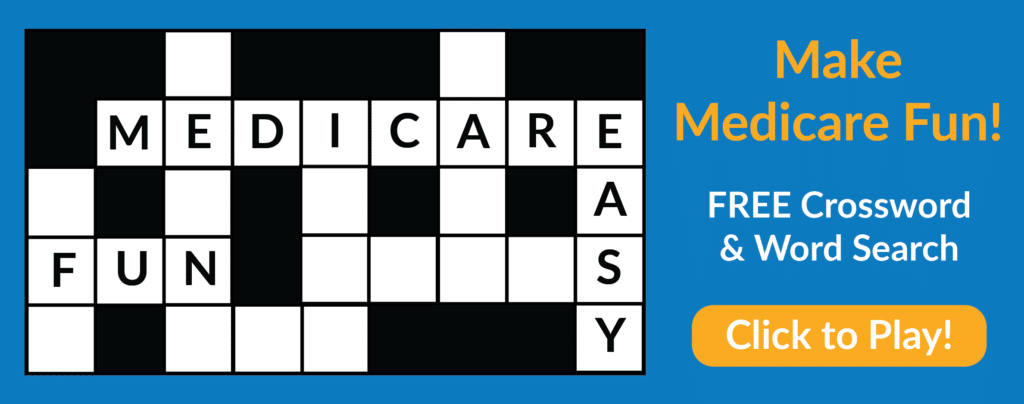
5 Ways to Boost Brain Health for Seniors
September 10, 2019It’s perfectly natural to lose some mental “processing speed” as we age. This process is called cognitive aging and usually starts as soon as we reach adulthood. While certain brain functions like vocabulary might even improve as we get older, others will gradually decline. A common list of cognitive changes in elderly people typically includes slower problem solving, diminished spatial awareness, and a decline in perceptual speed and memory.
Most of these aging brain symptoms are entirely normal but the rate of this decline may increase, leading to MCI (mild cognitive impairment) or even dementia. However, scientific research has uncovered several methods proven to help maintain elderly brain health and most of them are simple things you can do in your day-to-day life!
Staying Active At Any Age
The connection between exercise and brain health for seniors has long been established. But new studies are suggesting that staying active may be the best way to prevent memory loss in old age! While it might be most effective before severe memory loss begins, it also appears to benefit those with advanced conditions like Alzheimer’s or vascular dementia.
Seniors who exercise regularly can experience reduced inflammation, improved blood flow, and even increased growth of new blood vessels in the brain. An active lifestyle can also improve the quality of sleep, which we will see later is another crucial factor in maintaining brain health. In fact, sustaining a moderate regimen of low impact exercises from six months to a year has even been associated with increased volume in the prefrontal and medial temporal cortices, the parts of the brain responsible for memory and critical thinking!
Medicare Fitness Programs
Unfortunately, the research also indicates that exercise must be a regular commitment in order to see some of these amazing benefits. But dedicating at least three hours a week can be difficult for seniors who don’t have access to a gym. This is where Medicare plans that include fitness programs can help. Plans can include Medicare fitness programs Programs like SilverSneakers® and Silver&Fit® that are designed specifically for seniors and can provide access to fitness and exercise centers. Some may supply their less mobile members with home fitness kits.

Food For Thought: Brain Healthy Foods For Seniors
Many of us probably remember our mothers extolling the virtues of “brain food.” Turns out she was right! A diet consisting of mostly fruits, vegetables, nuts, beans, and fish has been closely linked to brain health and a lower risk of dementia. This “Mediterranean diet” is also often touted for its positive effects on heart health and cardiovascular risk factors, which can indirectly influence the health of the brain.

Best Memory Supplements For Seniors
In addition to a more healthy diet, many seniors take supplements to get a higher dose of these crucial ingredients than can be found in the foods themselves. Some of the most popular include fish oils like omega-3 fatty acids, antioxidants such as resveratrol, as well as creatine and even caffeine.
Companies have begun producing memory supplements targeted at seniors. Some of these include:
- Brainol (includes 19 ingredients for improved cognition, like B-Vitamins, Huperzine A, L-Theanine, and DMAE.
- Neurofuse (includes B-Vitamins, L-Theanine, DMAE Bitartrate, and Huperzine A.)
- True Focus (includes Horse Chestnut, Butcher’s Broom, Hesperidin, etc.)
- Irwin Naturals Brain Awake (includes Vitamin B6 and L-Theanine)
- BriteSmart (includes Huperzine A)
While memory supplements are not typically covered by Medicare, some Medicare Advantage plans might have an OTC (over the counter) allowance benefit which would allow you to purchase supplements. Click here to read more about OTC benefits in Medicare.

Training An Aging Brain
One of the easiest methods for seniors to maintain mental acuity is daily brain training. This interactive practice can take on many forms, from crossword puzzles to arts and crafts. And now more than ever, there are services and applications specifically designed to give you your daily dose of critical thinking.
Activities for Alzheimer’s Patients at Home
There are countless ways for seniors to get their brains engaged on a daily basis. Many are things you might already enjoy, including puzzles or card games. In the technological age, of course, many of these activities can be done on a computer or smartphone.
In addition to these traditional games, there are many apps that are designed specifically as activities for seniors with dementia and Alzheimer’s. Apps like Lumosity are great for challenging your brain on a daily basis and some, such as Mindmate, even include exercise and nutrition tips. A cursory Google search may also help you find other free brain games for seniors.

Seniors Staying Social
Some doctors suggest that one of the best ways to retain memory and cognitive functioning is to remain engaged with a social group. Many seniors use social media to stay in touch with family and friends and there are even apps like Timeless that are designed to help people with dementia or Alzheimer’s stay social.
Clear Your Mind (And The Rest Will Follow)
The importance of everyday factors like stress and sleep on brain health for seniors shouldn’t be overlooked, especially for the elderly. A good night’s sleep will clear the brain of toxins that accumulate throughout the day like beta-amyloid, a protein which is also commonly found in Alzheimer’s patients. Stress can also play a huge role in how the brain functions by introducing high levels of cortisol and even possibly reducing the size of the prefrontal cortex, the part of your brain that governs memory and learning.
Meditation and Aging
Meditation has been shown to increase the thickness of the hippocampus and decrease the volume of the amygdala, which is responsible for stress and anxiety. Research into mindfulness meditation has even indicated an effect on the process of aging itself. A 2017 UCLA study showed that the brains of people who meditate regularly actually declined at a slower rate than those who did not.
Natural Sleep Remedies For The Elderly
We know that sleep is essential for overall brain health for seniors, but many older adults experience trouble sleeping. Some practices for getting better sleep include turning off screens and lights, regular exercise, reducing sugar intake, and keeping a consistent sleep schedule with naps no longer than 20 minutes. If something more serious is causing you to lose sleep, you might need to consult a physician to test for sleep apnea or to evaluate any medications you might be taking.
Medicare Annual Wellness Visit
If the decline in cognitive functions persists or accelerates, you may need to seek professional help as a preventive measure. As part of your Medicare benefits, you may be entitled to a paid Annual Wellness Visit with your primary care provider to develop a personalized prevention plan that takes into account your lifestyle and risk factors.
In addition to checking physical factors like height, weight, and blood pressure, they can perform a cognitive assessment and screen for various forms of dementia or cognitive impairment. Additionally, a Special Needs Plan might be used to supplement your Medicare benefits. These plans are Medicare Advantage products specifically focused on providing care and coverage for patients with dementia.
Prescription Drug Plans for Alzheimer’s
If your condition or that of a loved one develops into Alzheimer’s or another form of dementia, Medicare Part D may cover the cost of prescription drugs to treat the symptoms. These medications include brands like Aricept and Exelon. Though they are not cures for the disease itself, they are effective at temporarily improving common symptoms of dementia, such as confusion or aggression.
Memory Care Through Medicare
Some severe cases of dementia and Alzheimer’s can make it nearly impossible to handle all the daily duties that come with living alone. In these cases, Medicare may help pay for nursing home care for a period of up to 100 days but will not cover such a solution in the long-term. However, some Medicare Part C plans may help cover the high costs of a nursing home or memory care facility.
For help enrolling in a Medicare plan that covers memory care and other brain health services, call us at 844-431-1832 or click here.

